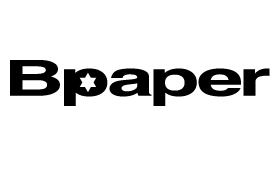-
Will Facebook's Social Search Feature Also Reveal a Brighter Future?
Facebook社交圖表搜尋帶來的新商機Posted by Sheila Shayon on January 16, 2013 11:44 AM指導者 / 總編輯 張蕙娟摘譯者 / 賴俞臻Facebook即將推出社交圖表搜尋的新功能,讓使用者能輕易透過智能搜索十億個檔案、二百四十億張照片以及一百萬兆的連結而得到解答,被CEO馬克祖克柏稱之為「一種獲取資訊的嶄新方式」。社群業務評論家認為,這樣的模式將會使得一般民眾主導品牌行銷,使用者會較相信他人的推薦而非品牌本身形象,而品牌策略將會降低其影響力。但同時也產生了使用者對於隱私問題的擔憂,尤其照片、按讚的粉絲專頁及分享過的連結可能都在搜索下無所遁形;另有對於其搜索引擎的效力質疑,認為相似名稱的產品太容易混淆,將得不到有效度的答案。然而觀察家卻認為這樣的功能可以為Facebook帶來一筆龐大的商業利益,將會有更多業者投資以賺取廣告效益。
Will Facebook’s newly unveiled social graph feature soon bring the company profit and additional relevance?
Mixed reactions are meeting Graph Search, which CEO Mark Zuckerberg called "one of the coolest things we've done in a while" in announcing the feature on Tuesday.
Graph Search enables search using natural language and replaces links to answers with direct results. Sample searches include “Movies my friends in San Francisco like,” “Photos my friends took in the 1990s,” and “Languages my friends from college speak.”
"This is a beta product," Zuckerberg said at the company's rollout event in Menlo Park, Calif. "We focused on a few use cases that we think are good. Even as an early product, Graph Search is a completely new way for people to get information on Facebook."http://youtu.be/SD951tHz38g
The current functions of Graph Search focus on people, photos, places and interests, mining Facebook’s deep data. Graph Search culls and indexes from 1 billion profiles, 24 billion photos and 1 trillion connections. It is not integrated with Instagram, the popular stylized photo-sharing app purchased by Facebook in April, though Zuckerberg said doing so “should be on the list of things that we’ll hopefully one day get to.”
As Business 2 Community blogger Jon Thomas noted, the move puts the onus on brand marketers and their agencies to ramp up Facebook engagement:
This type of searching becomes even more important as consumers trust brands less and less and consequently depend on friends, friends of friends, and complete strangers to recommend movies to see, restaurants to visits, hotels to stay at, products to buy and more. It is now the fans that are marketing for brands, whether the brands like it or not.
If you weren’t concerned about your brand’s social footprint, you have cause for concern now. Graph Search puts the onus on brands to connect with the right types of fans (another reason buying Likes is a scam) on its Page and give its fans reasons to interact with its content on an ongoing basis. By increasing engagement metrics, which signals to Facebook that a Page is relevant, a brand stands to benefit in Graph Search results.
Facebook users, meanwhile, may very well be concerned about privacy, which Zuckerberg said is being taken "really seriously" (see FB's video, below). He said Graph Search returns only content that has been previously shared with a user; if it’s outside their range, a search will default to Microsoft's Bing.
Zuckerberg was quick to add the Microsoft partnership is not exclusive. “We would love to work with Google," he said. "When we did our Bing web search integration, we were very public about the fact that this wasn’t a thing that we were trying to do with Bing. We’re trying to make search social in general.”
But The Wall Street Journal saw the move as setting Facebook on "a collision course" with Google. Facebook "is attacking Google's core strength and its most lucrative product," it said Wednesday.
In a separate story, the Journal noted the difference between Facebook's new feature and Google's Knowledge Graph. “Instead of a movie the general public agrees is awesome, it will be one your friends think is awesome. The theory is that positive signals from your friends and those closest to you are more important than those of strangers — regardless of how important or influential they are.”
Some heralded the move. "Facebook finally made itself useful," Farhad Manjoo wrote in Slate. "It gave us a reason to care about likes, check-ins and tags."
By contrast, Business Insider roundly cricitized the name of the feature. “By calling its new search engine 'Graph Search,' Facebook has likely needlessly confused about 999 million of its users," it said. "What should Facebook have called the product instead? "Facebook Search"…in naming this product, in an uncharacteristic mistake, Facebook forgot who its service is actually for."
No monetization strategies have been revealed, but some analysts told CNET on Wednesday that they believe the new feature may eventually be a money-maker.
"Given Facebook's large scale, getting users to search on the platform is a significant opportunity," said Justin Post, a Bank of America Merrill Lynch analyst. "If Facebook can generate just one paid click per user per year, the company can add $500 [million] in annual revenue."
While Google may have something to worry about in the long term, those needing to watch Facebook's move closely include the popular crowd-review site Yelp and the online singles site match.com.
Below, Facebook's video addressing potential privacy concerns around Graph Search: http://youtu.be/bSji6Y66aKo
摘譯自BrandChannel:
http://www.brandchannel.com/home/post/2013/01/16/Facebook-Graph-Search-011613.aspx




